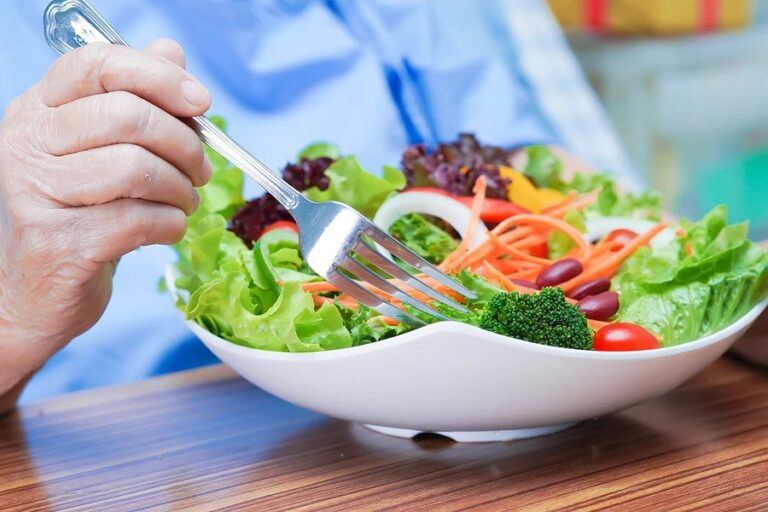Gluten is a pervasive element in western diets. Gluten is present in most types of bread and cereal derivatives.
Some people are allergic to it, so they must eliminate gluten for medical reasons. Others do it out of a search for additional health benefits.
This article looks at the benefits of a gluten-free diet and how to do it.
What is gluten, and why eliminate it from the diet?
Gluten is a type of protein contained in the grains of certain groups of cereals. The most popular: is wheat, although it is also found in barley and rye. Gluten is the protein that gives the dough the elastic characteristic as well as it is used as an additive in some foods as a thickener, such as tomato sauces.
Carrying out a gluten-free or gluten-free diet is essential for those with celiac disease or intolerant to it. Avoiding certain food groups is necessary for these people. In addition, the social tendency to make a gluten-free diet by choice is more and more frequent.
Who should follow a gluten-free diet?
Eating a gluten-free diet should be a priority for people with celiac disease. In these cases, it is a health issue.
Even if a gluten-free diet has been followed for long periods, a minimal amount of gluten in the diet of a person with celiac disease is enough to cause destruction of the intestinal microflora and cause severe symptoms.
People who must follow a gluten-free diet are:
- Gluten intolerant – people with a mild reaction to gluten can cause mild symptoms and disorders in the digestive system.
- Celiac Disease. This is a more severe case of a gluten reaction and is considered an autoimmune disease. A small portion of gluten is enough to cause all kinds of symptoms.
A celiac must make sure that all the foods he buys do not contain gluten in their composition. Fortunately, large producer chains are releasing more and more variants of gluten-free natural foods, such as oats, to the market.
Gluten-Free Diet – Benefits
In addition to celiacs, some people decide to go on a gluten-free diet not out of obligation but because of its nutritional benefits. The benefits of a gluten-free diet begin by automatically cutting out a quantity of high-calorie foods and poor-quality ingredients.
Industrial bakery products and biscuits are high in simple carbohydrates and refined flours. Limiting this type of food is the first rule not only for losing weight but also for preventing chronic diseases such as type 2 diabetes.
For others, the reason is medical; gluten intolerance destroys intestinal flora. Gluten-free foods can cause digestive problems like gas, bloating, diarrhea, and bloating. The benefits of a gluten-free diet are:
- Less heaviness
Eating a gluten-free diet can improve a person’s energy balance. While most gluten-containing foods are high in calories; and, therefore, energy, foods with refined flours tend to cause reluctance and heaviness.
- Improve the digestion process
Including foods with fiber and gluten-free is the best to improve the digestion process. These foods include the husk in their composition, such as brown rice.
- Loss of body weight
Claiming that a gluten-free diet can allow weight loss is not always correct. Although an indirect elimination of foods with high sugar content and refined flours generally occurs.
Some people mistake eating only industrial gluten-free foods, which may be higher in salt, sugar, and saturated fat. (5) Research states that this is one of the benefits of a gluten-free diet only when there is a balance of nutrients and calories. (3,4,5)
- It can improve cases of autism
Two investigations suggest that combining a gluten-free diet with a casein-free diet can positively affect autism symptoms. (6) (7) Apparently, a gluten-free diet can improve children’s behavior and episodes of autism. It should be noted that both studies are not entirely conclusive. They suggest increasing the number of participants and testing before taking this for granted.
- Gluten-free foods reduce inflammation.
Reducing inflammation is the first change you can see when making a gluten-free diet. Changes in the shape of the face and the body are clear benefits that appear instantly. However, it may seem merely cosmetic or a very mild symptom. Inflammation is the body for long periods is associated with a higher chance of chronic heart disease and a higher chance of cancer.
Does gluten make you fat?
Gluten is a protein. Like any other protein, it provides about 4 Kcal per gram, so it could be said that an excess of gluten does make you fat.
Additionally, preliminary studies suggest that gluten may increase visceral fat in animals. (8)
In this research, it is suggested that gluten could cause changes in the types of body fat due to changes in the metabolic processes of oxygen.
Although more studies are still needed to confirm this theory, everything indicates that an excess of gluten in the diet can cause adverse effects on metabolism. So this could be one of the benefits of going on a gluten-free diet.
How to do a gluten-free diet?
Going on a gluten-free diet can be challenging at first. Most industrial products work with gluten in their machinery. Eliminating gluten from the diet means increasing the price and time spent on food.
However, do not be intimidated. You can practice the following tips that will make eliminating gluten from the diet easy. First of all, you have to know which products and foods are gluten-free and which are not.
Foods prohibited in a gluten-free diet:
- Wheat flour
- Barley
- Malta
- Yeast
- Rye
- Burgundy wheat
- Oats (not all brands)
Foods allowed on a gluten-free diet:
- Quinoa
- Buckwheat
- Integral rice
- Amaranth
- Corn
- What’s good
- Sorghum
- Gluten-free oats
- Chia seeds, flax, sesame
- Coconut flour
- Fruits and vegetables
- meats
- Fruits of the sea
- Nuts
- Legumes ( red lentils, black, white, green beans)
- Gluten-free dairy products
List of foods that may have gluten:
- Instant soup
- Soy sauce
- Instant coffee (not all brands)
- Ketchup and tomato sauces
- Most of the beers
- Potato chips snacks
- Mustards and mayonnaise
- Spirits
How do I know if I am gluten intolerant?
The easiest way to identify gluten intolerance is to do a lab test, just as you can do a home test by completely restricting the consumption of bread and all foods with gluten for a few days.
After a few days, you should eat a food high in gluten and observe if there is a change or discomfort in your digestion. If you are gluten intolerant, stomach symptoms, diarrhea, and vomiting, among others, will appear. The intestinal microflora will need 10 to 14 days to recover in these cases. In these cases, a gluten-free diet should be started as soon as possible.
R ABSTRACT
- Gluten is a type of protein present in some cereals. The most common are wheat, barley, and rye.
- Eating a gluten-free diet is extremely important for people who have celiac disease or are intolerant to it.
- The relationship between eliminating gluten and weight loss is not direct. While one of the benefits of a gluten-free diet is limiting foods high in sugar and refined flour, It does not mean that it is the only measure you have to take to lose weight.
- Weighting natural, gluten-free foods is critical to a healthy gluten-free diet.







